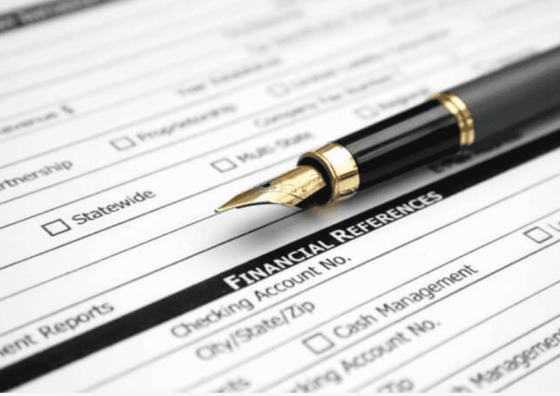When you’re a first–time car buyer, there are many things to consider. What kind of car do you want? What features do you need? What’s your budget? And don’t forget the most important question: How will you pay for it?
There are a few different ways to go about buying your first car. Which option is the best? Keep reading to find out.
Brief Car Buying Guide for First-Timers
When you’re ready to start shopping for your first car, be sure to keep these questions in mind:
- What’s your budget?
- What kind of car do you want/need?
- How will you pay for it?
Set Your Budget
The first step to buying a car is figuring out how much you can afford.
For example, the cheapest new cars will cost between $14,000 and $15,000. Of course, if you want to buy the cheapest Lambo, you’ll have to set aside about $200,000. So definitely consider your finances and set a realistic budget.
You’ll also need to factor the insurance, gas, and maintenance into your budget.
Decide on a New or Used Car
When buying a car for the first time, you’ll also need to decide whether you want a new or used car.
On the one hand, if you’re looking for the latest and greatest technology, a new car might be the way to go. The interest rate for a new car loan can amount to 4.18%. On the other hand, if you’re on a tight budget, a used car might be better.
Bonus tips for buying a new car: If you’re not sure what you want, consider buying a certified pre-owned car. These cars are typically newer and have fewer miles than traditional used cars.
Test Drive
Before you buy the car, make sure to take it for a spin. There are a few reasons why test driving is essential. First, it allows you to get a feel of the car. You can see how it behaves and how comfortable you are behind the wheel. You can also analyze its design.
Secondly, once you start the engine, you need to pay attention to the noises to see if there are any abnormalities. For example, if you hear a high-pitched squealing sound, the brakes might be worn out, and if you hear grinding sounds when you hit the brakes, it might indicate that the pads have worn out.
And finally, when it comes to buying your first car, a test drive can help you see whether the vehicle matches your driving style.
Testing a car is also important since, in most cases, you won’t be able to return it once you purchase it. The dealer who sold you the car is not legally obligated to take the car back and issue you a refund or let you exchange it after you’ve signed the sales contract.
How to Finance Your First Car Purchase
How are you going to pay for your car? You can either take out a loan, lease the car, or pay for it in cash. Each option has its pros and cons.
Loan, Lease, or Cash?
To obtain a first–time car buyer loan, you’ll need to get pre-approved, which starts with going to a bank or credit union to apply for a loan. Once approved for a loan, you’ll know how much money you have to work with.
You can also use the almighty cash, in which case it’s a good idea to start saving as soon as you start looking for a car.
If you’re leasing a car, you’ll need to be aware of the mileage limits. Most leases have a limit of 12,000–15,000 miles per year. If you go over this limit, you’ll have to pay a fee. You’ll also need to make sure that you keep up with the scheduled maintenance on the car.
Debit vs. Credit Cards
Are you considering a debit or a credit card when wondering how to buy your first car? You can use both cards to buy a car. Both options come with pros and cons.
For example, when buying a car using a debit card, you might have a problem getting approved if your credit score is low. On the other hand, buying a car with a credit card offers more flexibility, although, in the long run, the process can be more expensive.
First–Time Car Buyer Programs
Programs are in place to help first-time buyers purchase a new or used car. Some automobile producers offer them to make their vehicles more appealing to new buyers.
For example, Toyota will offer you its first-time buyer program if you meet the requirements, such as a FICO score of 610 or higher, a maximum car payment-to-income ratio of no more than 20%, and proof of income of at least $2,000 per month.
Ford also offers a first–time car buyer program to everyone who does not have a car credit or negative credit records. You also need to have a monthly income of $2,000 or more.
Other popular carmakers offering first-time buyer programs include Honda, GM, and Hyundai.
Buying a Car With No Credit
While your credit history is important when purchasing a vehicle, there are some alternatives if your credit score has dropped or you don’t have a score at all.
For example, a first–time car buyer with no credit can:
- Save for a down payment. A down payment is the amount of cash you set aside upfront towards purchasing your car. The more money you can put down, the lower your monthly payments.
- Use a credit union. Credit unions typically have lower interest rates than banks and are more willing to work with first-time borrowers. For comparison, the interest rates most credit unions offer for a 48-month car loan are 2.58% for a new car and 2.75% for a used car. Banks will offer you interest rates of 4.62% and 5.16%.
- Inquire about student financing. Some auto manufacturers provide first-time car buyer programs with no credit history requirements for students and recent graduates. For example, the Ford Drives U offers a $500 bonus cash to college or trade school students when they purchase or lease a new Ford EcoSport, Escape, Edge, Mustang, Ranger, Maverick, F-150, or Lincoln vehicle.
Conclusion
Now that you know the ins and outs of being a first-time car buyer, go out there and get the perfect ride for you. With these tips, you’ll be sure to find a great deal on a beautiful car that will make heads turn.
Just remember to stay patient throughout the process, and don’t let anyone take advantage of you.
Happy car hunting!
FAQs
Is it hard for first-time car buyers?
It can be, especially if you don’t know what you want. Therefore, it’s vital to prepare a bit.
For example, before buying a new car, you can work with an experienced and trustworthy salesperson, ask friends and family for recommendations, or look for customer reviews online.
You can also research various makes and models to find the perfect car for your needs and budget.
What is the 1st thing you do before purchasing a car?
Go on a test drive. You might think you know what kind of car you want, but it’s important to ensure it feels right before you commit.
Make sure all the features and controls are easy for you to use. Pay attention to how the car behaves on different types of roads.
How do I finance a car for the first time?
You can get a loan from a bank or credit union, ease a car, or use cash. If you decide to get a loan, shop around for the best interest rate.
You can also look into first-time buyer programs from dealerships or manufacturers.
What should first-time car buyers know?
If you’re a first-time buyer, you should know your budget. Have a realistic idea of how much you can afford to spend on a car.
Do your research. Look online, in newspapers, and talk to friends and family to get recommendations.
Get pre-approved for a loan. This will give you an idea of how much money you have to work with.
Look for a car that fits your needs. If you have a family, you might need a bigger car than if you’re single.
A first–time car buyer must always compare prices. Never buy the first car you see before enquiring about what else there is on the market, and testing them.






